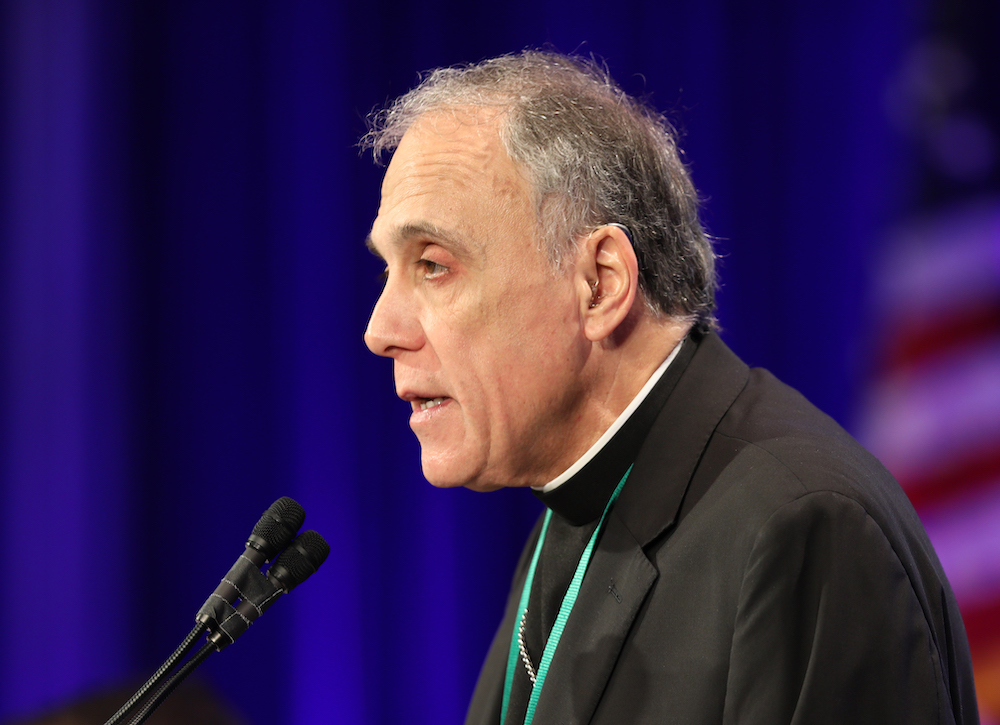In what was expected to be a dramatic show of the United States Conference of Catholic Bishops fight against clerical sex abuse, Cardinal Daniel DiNardo, president of the USCCB, announced that the Vatican has requested a delay on such measures until after a February Vatican summit on the scandal.
The surprise move at the start of the U.S. bishops meeting on Monday - in which the cardinal himself still seemed to be processing - delays much-anticipated votes to approve new standards of conduct for bishops and the establishment of an outside commission to review violations of the code.
DiNardo said the Holy See informed him of the request on late Sunday afternoon.
In September, Pope Francis announced he was summoning the heads of every bishops’ conference around the globe to Rome from February 21-24 for a summit on the sex abuse crisis.
Cardinal Blase Cupich of Chicago proposed that the bishops take a non-binding vote on the proposals in order to give DiNardo a sense of where the conference stands ahead of the February meeting. Cupich also suggested that the U.S. bishops hold a special meeting in March to begin enacting new protocols following the February Vatican summit.
The bi-annual meeting of the U.S. bishops in Baltimore this week comes after what some observers have referred to as the Catholic Church’s “summer of shame.”
Since June, when now ex-Cardinal Theodore McCarrick was removed from ministry following revelations of sexual abuse of a former altar boy and serially abusing seminarians, the American Catholic Church has been engulfed in what many believe to be the greatest crisis the U.S. bishops have faced since the founding of its conference over a hundred years ago.
A Pennsylvania grand jury report released in August, chronicling over 1,000 cases of abuse at the hands of more than 300 abuser priests over seven decades, has since sparked more than a dozen states to initiate similar efforts, leading many to believe that a nationwide investigation is likely.
DiNardo, during his presidential address at the start of the conference, said that despite the morning’s announcement, the bishops remain committed to “the greater program of episcopal accountability,” and that in the coming days the bishops would prepare themselves “to move forward with action.”
In addressing survivors of clerical sex abuse, DiNardo said he was “deeply sorry.”
“In our weakness, we fell asleep,” he lamented, thought he warned that the faithful could not fall into despair and presumption.
“Some would say that this is a crisis of the past,” he continued. “It is not.” He also decried “victimizing survivors all over again by demanding they heal on our timeline.”
While he said it was accurate to note that the majority of cases of sex abuse occurred decades ago, he acknowledged the pain of survivors continues.
He also said it was unacceptable for the bishops to exempt themselves from the standards of “zero tolerance,” on abuse that priests and others working for the Church are subjected.
During the morning session, the bishops also heard from Archbishop Christophe Pierre, the pope’s representative to the U.S., in which he “collaboration with the laity in essential.”
“We must show that we can solve problems rather than simply delegating them to others,” he challenged.
“The people of God have rightly challenged us to be trustworthy,” he continued, adding, “We must not be afraid to get our hands dirty.”
Following remarks from DiNardo and Pierre, the bishops adjourned for the day, where they will spend the rest of Monday in prayer and reflection, where they will hear a testimonial from a survivor of clerical sex abuse and a religious sister on the need for healing.
Monday will conclude with a Mass, followed by daylong sessions on Tuesday and Wednesday.
The president of the U.S. Conference of Catholic Bishops announces, at the insistence of the Holy See, that the U.S. bishops will not vote on any action items regarding the clerical sexual abuse crisis. (Video by Catholic News Service)

